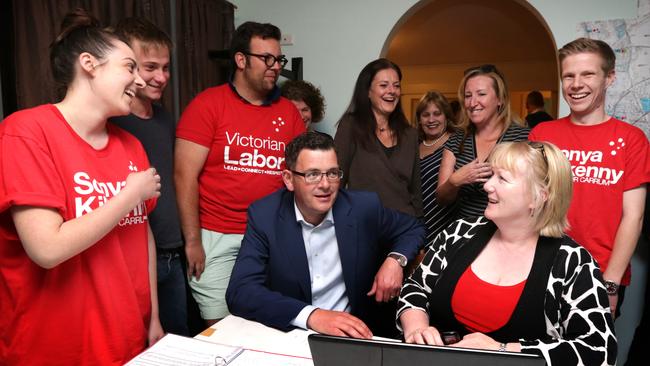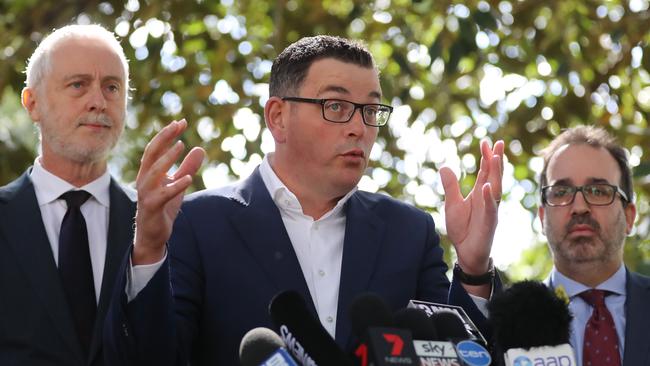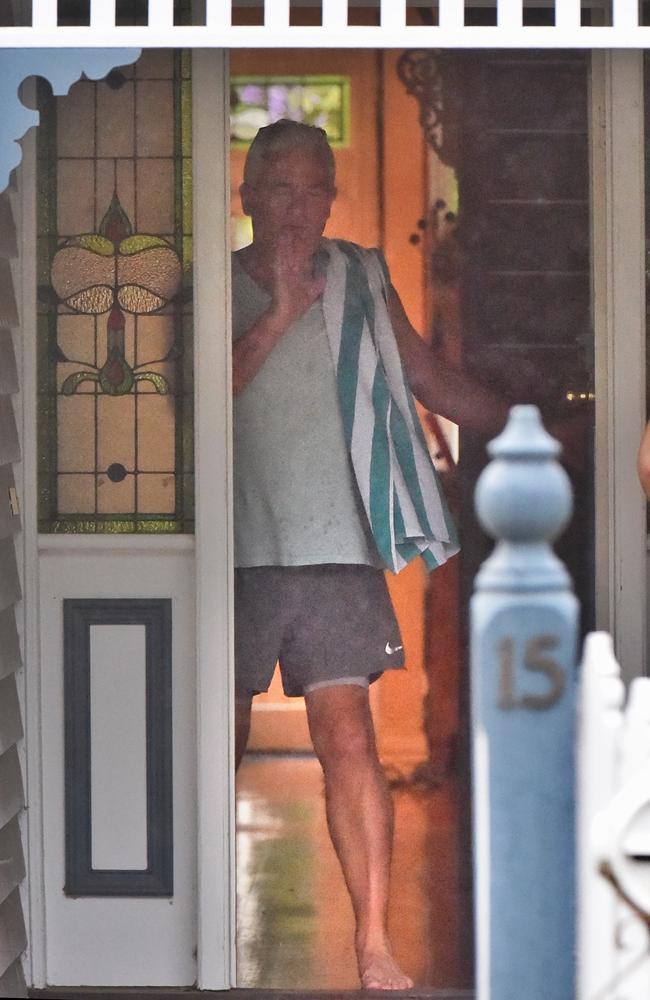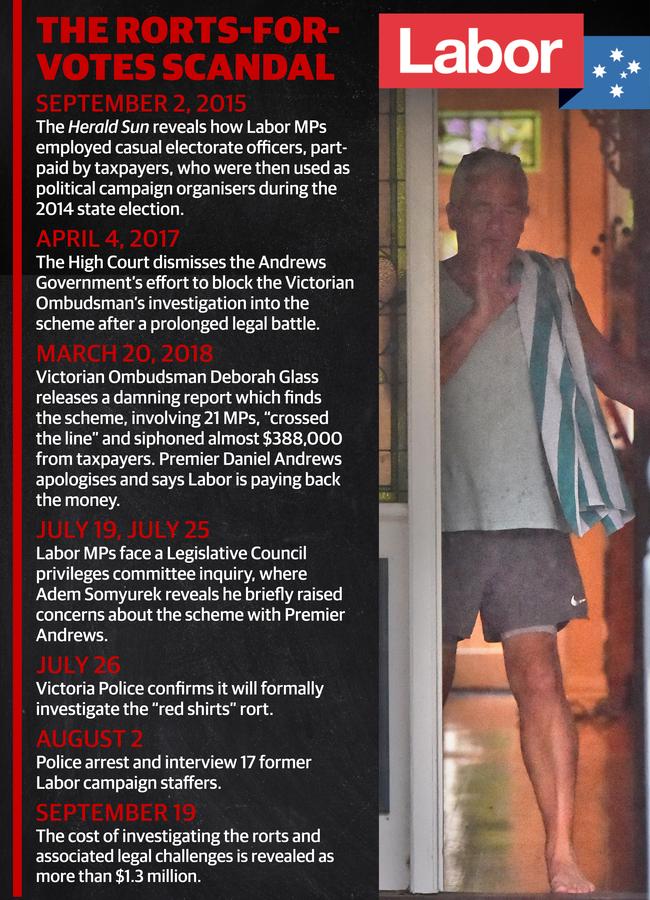Police request interviews with Labor MPs over red shirts rorts, just weeks before state election
FRAUD detectives have begun asking Labor MPs involved in the party’s rorts-for-votes scheme to come in for questioning just 38 days before the Victorian election. Premier Dan Andrews refused to answer media questions on the issue this morning.
Law & Order
Don't miss out on the headlines from Law & Order. Followed categories will be added to My News.
POLICE have begun asking Victorian Labor MPs involved in the party’s rorts-for-votes scheme to come in for questioning.
The political bombshell, dropped just 38 days before the state election, follows August’s dramatic dawn raids by police on former Labor campaign staff.
Premier Daniel Andrews refused to comment this morning when asked how
many of his MPs had been contacted by police.
LABOR RORTS FOR VOTES EXPOSED: HOW IT HAPPENED
ANDREWS SILENT ON RORTS-FOR-VOTES DAWN RAIDS
TOP COP: RORTS PROBE FOLLOWING ’LETTER OF THE LAW’

He also refused to answer questions about whether his MPs would co-operate with the investigation, and whether voters had a right to know the position of MPs caught up in the probe.
“As this is an ongoing matter I’m unable to provide any commentary at all,” Mr Andrews said.
“It would be completely inappropriate.”
In the rorts-for-votes scheme, revealed by the Herald Sun three years ago, 21 Labor MPs hired taxpayer-funded staff to help organise the party’s 2014 election campaign by “red shirt” volunteer doorknockers.
In the past 48 hours, fraud squad detectives have asked MPs to come in for questioning.
It is unclear how many of the 21 past and present MPs — who include six ministers — have been asked to provide further information to police.
A Victoria Police spokeswoman said of the inquiry on Tuesday night: “As this is an ongoing investigation, it would be inappropriate to comment further.”.
After investigating the rorts for votes scheme, Ombudsman Deborah Glass concluded in March it was an “artifice” set up by the party, and “wrong”.
Mr Andrews asked the ALP to repay almost $388,000.

Police are considering if charges of making and using a false document, false accounting, conspiracy to cheat and defraud, or misconduct in public office could be laid.
The six ministers at the centre of the police investigation — Special Minister of State Gavin Jennings, Attorney-General Martin Pakula, Youth Affairs Minister Jenny Mikakos, Corrections Minister Gayle Tierney, Energy Minister Lily D’Ambrosio and Sports Minister John Eren — declined to comment.
Instead, a government spokesman said: “As this matter is ongoing, it’s not appropriate to comment.”
Former Labor treasurer John Lenders, since retired, whom Ms Glass identified as the architect of the scheme, told the Herald Sun to “go away” when approached over the investigation on Tuesday night.
“I do not want to talk to you. You are trespassing on my property. Please leave,” he said.

It is understood the fraud squad has been examining documents, including timesheets, signed during the electorate officers’ employment.
More than 30 police were involved in August’s “dawn raids”, which were labelled “completely unnecessary” by Labor Party state secretary Samuel Rae.
It raised questions about whether MPs would be subjected to the same treatment as the staffers.

In interviews after those arrests, the electorate officers were questioned about their job applications and any correspondence during recruitment.
Earlier this month, Chief Commissioner Graham Ashton dismissed reports the MPs would be interviewed via questionnaires. And he said the timing of the election would not influence the investigation.
“My instructions has always been on those matters that they continue like any other matter and the election timing’s not something that’s taken into account so they’ll take as long as they need to take like any other investigation,” Mr Ashton said.
When the Herald Sun broke the story in 2015, a dismissive Premier asserted that “the rules have been followed”.
It was not until Ms Glass’s report in March that he apologised for the scheme. But he refused to stand down the ministers once police began investigating in July.
He also repeatedly denied having had any knowledge of the scheme, despite Labor MP Adem Somyurek’s evidence to a Legislative Council privileges committee inquiry in July that before the 2014 election he had “sort of raised the matter, probably for my own comfort and reassurances”.
Defending the scheme to the committee, Mr Lenders said he had “workshopped” it with the Department of Parliamentary Services, though he admitted he did not detail exactly what the electorate officers were employed to do.
He said he assumed the scheme was within the rules, because Parliamentary Services had paid the bill.
“You’ve got to try it on, and if they pay, you know it’s met their ultimate test,” he told the inquiry.
